Views offered at Sustainable Development 2023 conference
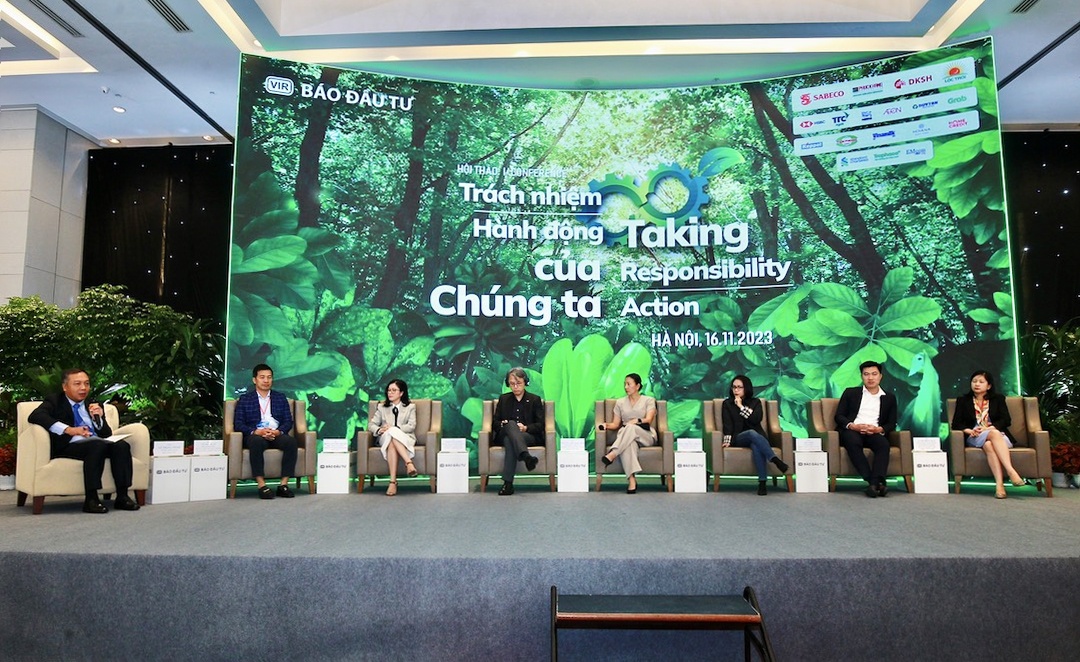 |
Doan Vu Uyen Duyen,
deputy general director, Thanh Thanh Cong - Bien Hoa JSC (TTC AgriS)
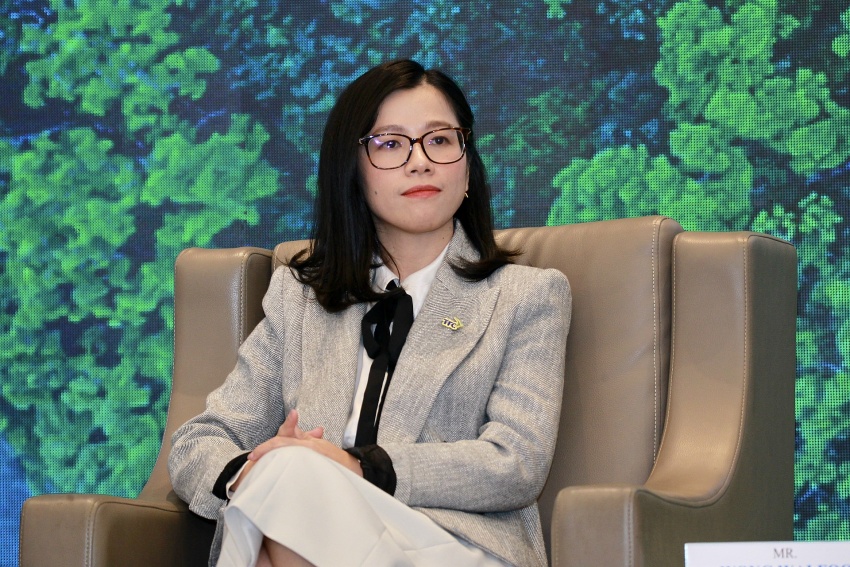 |
Imprecise farming methods are a major source of emissions in the agricultural sector. Precision farming requires a different approach to resources. In particular, the application of cutting-edge technology helps to accurately calculate the amount of fertiliser required for each soil type. Carefully calculated farming and fermentation models help TTC AgriS to eliminate unnecessary excess in our inputs for the manufacturing process.
In 2020, TTC AgriS took the first development step by implementing its digital transformation, placing subsystems on the same platform, and automatically consolidating the business activities in different countries, thereby supporting management.
TTC AgriS' integrated smart agricultural economic model brings common benefits to all involved parties, allowing farmers to use applications, determine the best timings during the growing process, and access agricultural research.
Technology platforms do cost money, but they bring long-term benefits. To realise the goal of digitalising and updating technology, the costs are huge, but the companionship of all the stakeholders helps us to be more confident on the path of digital transformation.
Wong Wai Foo,
head of Sustainable Urban Renewal in Vietnam, Keppel Corporation
 |
The net-zero target presents us with both opportunities and challenges. The main challenge is that it is an extremely demanding goal. Also, while there is greater acceptance by the public, the message is not widely spread enough.
Furthermore, it is not always easy to persuade consumers to pay a premium for sustainable solutions or tolerate the discomfort associated with the transition to a greener environment.
We need to increase our efforts to inform, encourage, and empower everyone involved in order to achieve the goal of net-zero emissions by 2050.
On the other hand, this can be viewed as a business opportunity. In fact, for Keppel, sustainability is not just a part of our business. Sustainability is our business.
As Vietnam accelerates its plans to reach net-zero by 2050, we see tremendous opportunities to offer more of Keppel’s sustainability solutions and services in the country. We look forward to working more closely with our stakeholders to offer solutions that will help to create a more sustainable future.
Keppel is pioneering its Sustainable Urban Renewal initiative with a mission to retrofit, future-proof, and extend the lifespan of older commercial buildings, including in Vietnam.
Unlike a new building which can be designed with new energy-efficient technologies from the outset, it is much more difficult to implement such technologies in an existing building.
The journey towards sustainable development and a robust real estate industry in Vietnam also requires the pent-up market demand arising from rapid urbanisation and the expanding middle class in Vietnam to be met.
Nguyen Thi Ngoc Hue,
general manager for Corporate Communication and External Affairs, AEON Vietnam
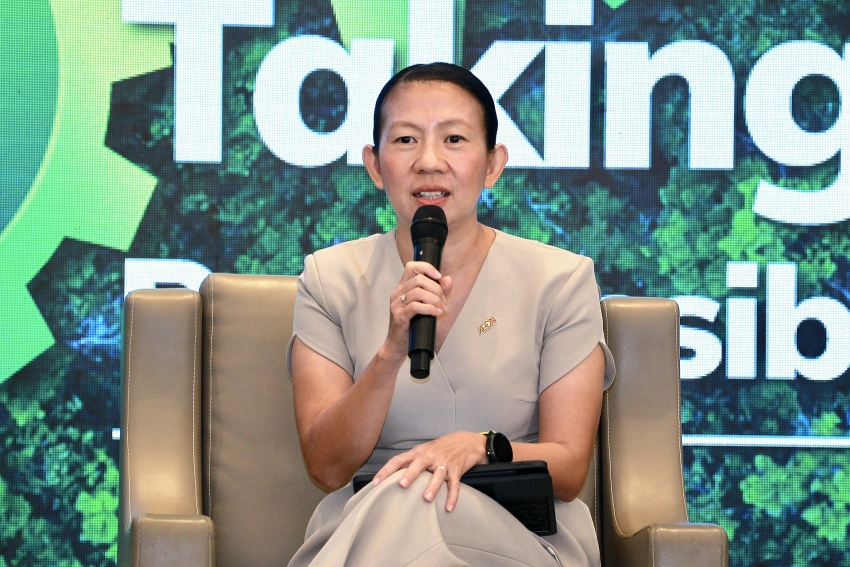 |
AEON is a retail group from Japan. A prominent issue we see is that plastic bags are used every day in huge numbers. Especially in the context of Vietnam, we do not have mandatory policies on the use of environmental protection bags.
Currently, all supermarkets are still providing free plastic bags, and the greatest challenge is to change consumer behaviour. In particular, if we apply a fee for plastic bags as has been done in other advanced countries, consumers will react badly because their use has been very popular among Vietnamese people for a long time.
30 years ago, Japan started applying a fee for plastic bags and encountered difficulties in the early stages as the switch lessens consumer interest.
AEON's business philosophy is Everything for Customers. Based on this, we carefully consider how to avoid making consumers sacrifice, so they will not hesitate when deciding to use eco-friendly bags.
We have an environmentally friendly solution that involves renting bags. Consumers do not need to spend money to buy bags, instead renting environmentally sound alternatives. This contributes to building positive habits while ensuring convenience and cutting cost for consumers.
Le Anh,
director of Sustainability, DuyTan Plastic Recycling
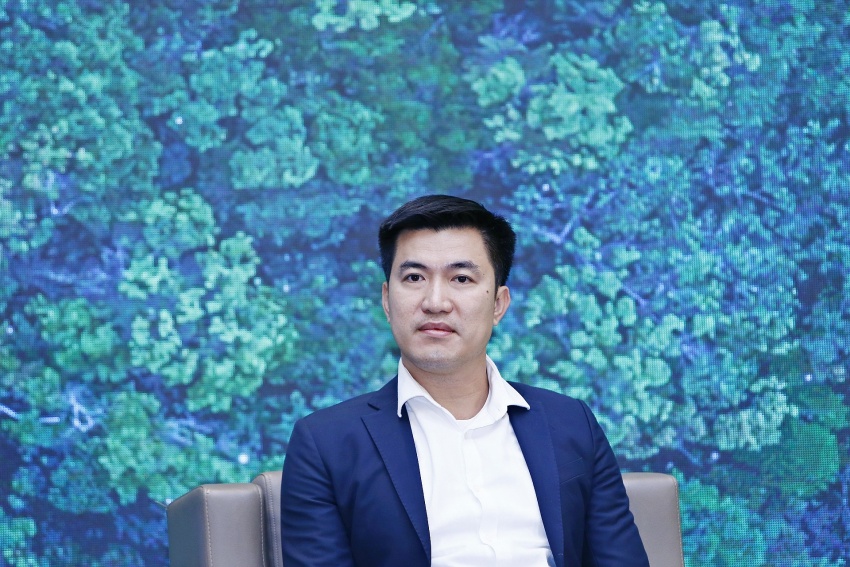 |
DuyTan Plastic Recycling is a business with 36 years of operation in the industry. Currently, we have invested in a high-tech factory to recycle every bottle after use. If before, these only had one life cycle, now they have a lifespan of 50 times longer.
While many people think of recycling as a responsibility, in reality, it is an opportunity and a market. The world over, waste has now become a resource. However, how to exploit and use it efficiently and effectively depends on us.
In Vietnam, there are associations that bring together recycling units such as those for packaging, metal, and plastic products. All of this is refreshing the recycling industry here and brings great expectations for a cleaner and greener environment that will benefit the whole society.
The current situation in Vietnam and other Southeast Asian countries is that the classification of waste at source is not done well. Of every 100 tons of plastic we collect, only half is suitable to be recycled into plastic bottles. The rest must be recycled into other products.
Poor classification causes a low recycling rate. I know that by 2025, we will apply classification at source completely. We hope that consumers who are still hesitant about recycled products will be educated and many programmes to raise awareness and recycle more products will also be implemented.
Dang Thi Thuy Trang,
director of External Affairs, Grab Vietnam
 |
Over its nearly 10-year presence here, Grab Vietnam's main goal has been to build a technology platform that is connected to sustainable value and brings maximum benefits to its users.
Accordingly, we constantly conduct research and development, providing services and enhancing technology so that partners on the Grab platform gain the maximum benefit. Thanks to this, drivers make more trips and increase their incomes, while users save on shipping costs and time.
We solve issues with technology as we focus on developing new features, such as heat maps. These point out which areas are in high demand and help drivers move towards those areas, thereby saving them fuel and time. Additional features, such as location sharing between drivers and passengers, help both parties find each other more easily. All of our efforts aim to reduce the time spent on the road and optimise the driver's ability to reduce emissions.
This helps applications like Grab to grow stronger and save costs and resources, but we are also facing the same difficulties as other businesses in the market. Currently, firms are still recovering, and we need to promote the digital transformation process more quickly.
Our two recommendations are to create conditions for the sharing economy to develop, and to set up a detailed roadmap to accelerate the goal of converting to electric vehicle usage.
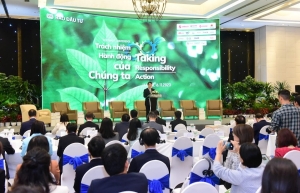 | Vietnam embraces green growth in its sustainable development strategy for 2023 At the Sustainable Development 2023 seminar, Deputy Minister of Planning and Investment Tran Quoc Phuong outlined Vietnam's commitment to green growth and sustainable development, highlighting the challenges and strategies in the new era. |
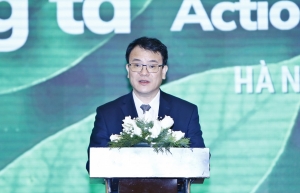 | Business community takes responsibility for sustainable development More than 200 representatives from government authorities and enterprises gathered at the Sustainable Development 2023 conference held by Vietnam Investment Review in Hanoi on November 16. |
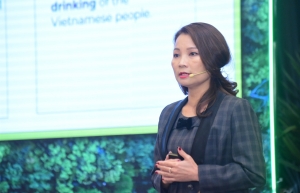 | SABECO's principles and commitments towards sustainable development With SABECO's mission of developing itself into an industry-leading corporation in Vietnam and across the world, it is committed to implementing its sustainable development based on three environmental, social, and governance areas. |
What the stars mean:
★ Poor ★ ★ Promising ★★★ Good ★★★★ Very good ★★★★★ Exceptional
Related Contents
Latest News
More News
- Masan Consumer names new deputy CEO to drive foods and beverages growth (February 23, 2026 | 20:52)
- Myriad risks ahead, but ones Vietnam can confront (February 20, 2026 | 15:02)
- Vietnam making the leap into AI and semiconductors (February 20, 2026 | 09:37)
- Funding must be activated for semiconductor success (February 20, 2026 | 09:20)
- Resilience as new benchmark for smarter infrastructure (February 19, 2026 | 20:35)
- A golden time to shine within ASEAN (February 19, 2026 | 20:22)
- Vietnam’s pivotal year for advancing sustainability (February 19, 2026 | 08:44)
- Strengthening the core role of industry and trade (February 19, 2026 | 08:35)
- Future orientations for healthcare improvements (February 19, 2026 | 08:29)
- Infrastructure orientations suitable for a new chapter (February 19, 2026 | 08:15)

 Tag:
Tag:



















 Mobile Version
Mobile Version